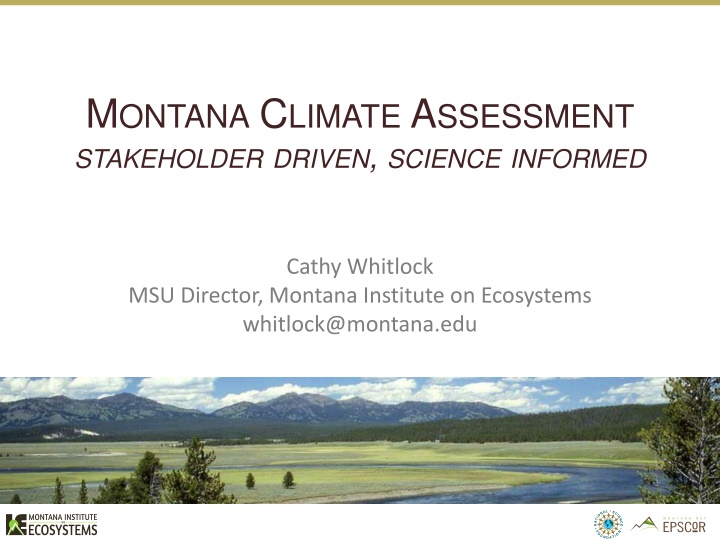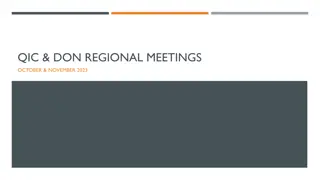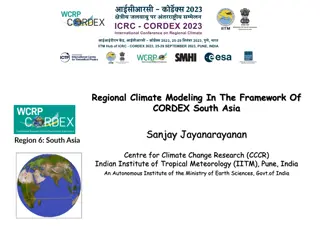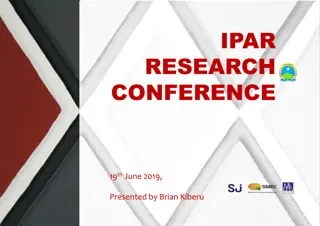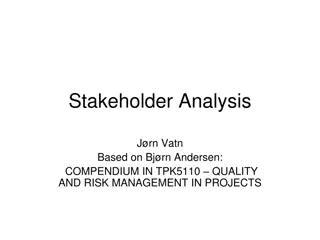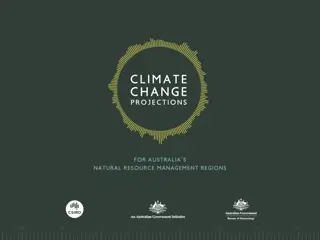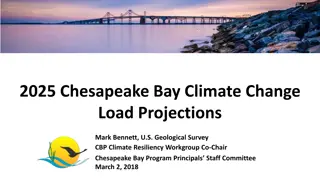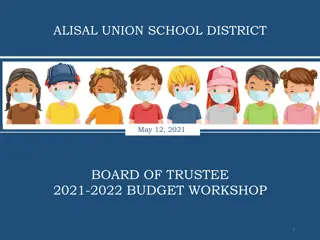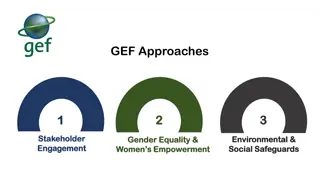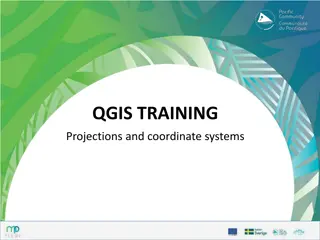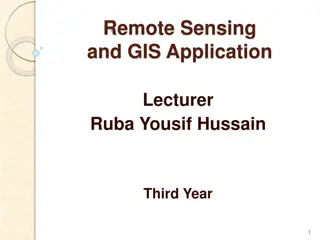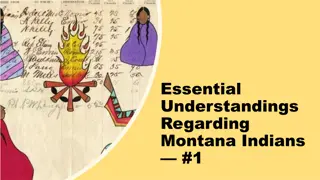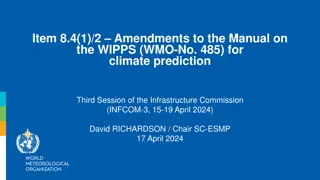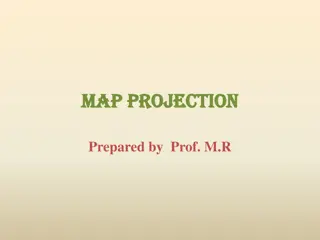Montana Climate Assessment: Stakeholder-Driven Approach & Projections
Montana Climate Assessment (MCA) is a stakeholder-driven initiative informed by science to understand critical climate impacts in Montana. The assessment focuses on key topics such as climate, water, agriculture, and forests. Stakeholder feedback guides strategy development, with projections indicating significant changes in temperature, growing seasons, snowpack, water trends, and agriculture in Montana. This comprehensive assessment aims to provide useful, updatable information to support sustainable decision-making in the face of changing climate conditions.
Download Presentation

Please find below an Image/Link to download the presentation.
The content on the website is provided AS IS for your information and personal use only. It may not be sold, licensed, or shared on other websites without obtaining consent from the author.If you encounter any issues during the download, it is possible that the publisher has removed the file from their server.
You are allowed to download the files provided on this website for personal or commercial use, subject to the condition that they are used lawfully. All files are the property of their respective owners.
The content on the website is provided AS IS for your information and personal use only. It may not be sold, licensed, or shared on other websites without obtaining consent from the author.
E N D
Presentation Transcript
MONTANA CLIMATE ASSESSMENT STAKEHOLDER DRIVEN, SCIENCE INFORMED Cathy Whitlock MSU Director, Montana Institute on Ecosystems whitlock@montana.edu
UNDERSTANDING MONTANAS STAKEHOLDERNEEDS MCA driven by outreach to ~900 citizens of Montana to determine: Critical decisions and issues impacted by climate What type of information they need How to disseminate useful information Stakeholder responses informed the MCA strategy
MONTANA CLIMATE ASSESSMENT Approach for Montana: Build on national efforts Build on university science, engagement & partnerships Sector-relevant assessments: User relevant Stakeholder driven Useful, updatable products Sustainable enterprise
KEY MCA TOPICS Climate Water Agriculture Forests
HOWIS MONTANAS CLIMATE CHANGING? Between 1950-2015: Average temperatures have risen 2-3 F. Winter and springs have warmed the most. Montana s growing seasons are 11 days longer. No changes in average seasonal precipitation. Future: Additional warming of 4-6 F by 2050 and 10oF by 2100 Precipitation will increase slightly in winter, spring and fall, and decrease in summer.
MONTANA WATER TRENDS & PROJECTIONS Between 1950-2015: Snowpack has declined, especially since 1980s. Earlier spring runoff. Streamflow is influenced by warming & climate variability (e.g., El Nino). Future: Snowpack will continue to decline with earlier snowmelt. Late-summer water supplies will decrease. Droughts will more severe with warming. Demands for groundwater will increase.
MONTANA AGRICULTUREPROJECTIONS Future: Decreasing snowpack will reduce late-season irrigation capacity (affect hay, sugar beet, malt barley, garden/potato production). Longer growing season could enable crop diversity but with greater vulnerability. More days >90 F will impact wheat & stress livestock. Winter annual weeds will increase. There are multiple drivers in Ag decision making; climate will become more important as warming increases.
FUTUREOFTHE MCA Public Comment Period April 10-May 5: Check the MCA website: http://montanaioe.org/mca MCA 1 will be released in August 2017 Cathy Whitlock (whitlock@montana.edu) Bruce Maxwell (bmax@montana.edu) MCA road show events in Fall (working with Extension, Extended Univ. to reach MT communities)
MAKE is a partnership of the states universities, extension service, state and Federal agencies, businesses, and non- profits. MAKE is a non-political collaborative program that facilitates the exchange of knowledge between scientists and stakeholders of Montana. MAKE s first priority is climate change adaptation, building on the success of the first Montana Climate Assessment.
